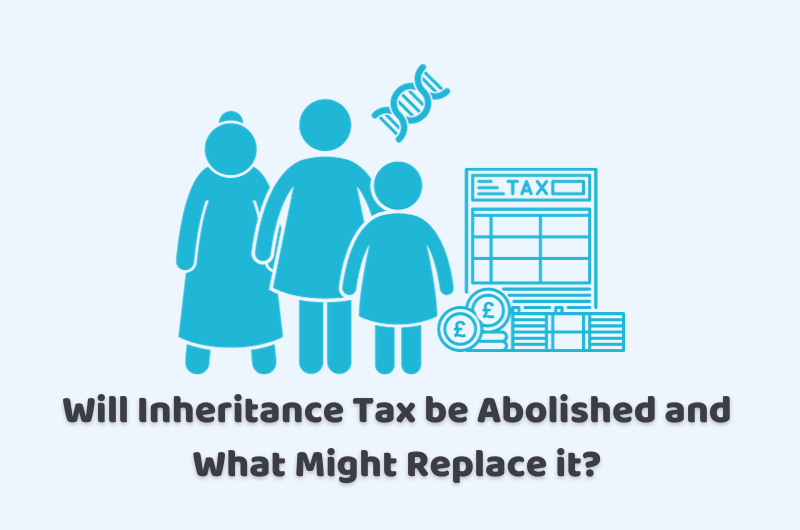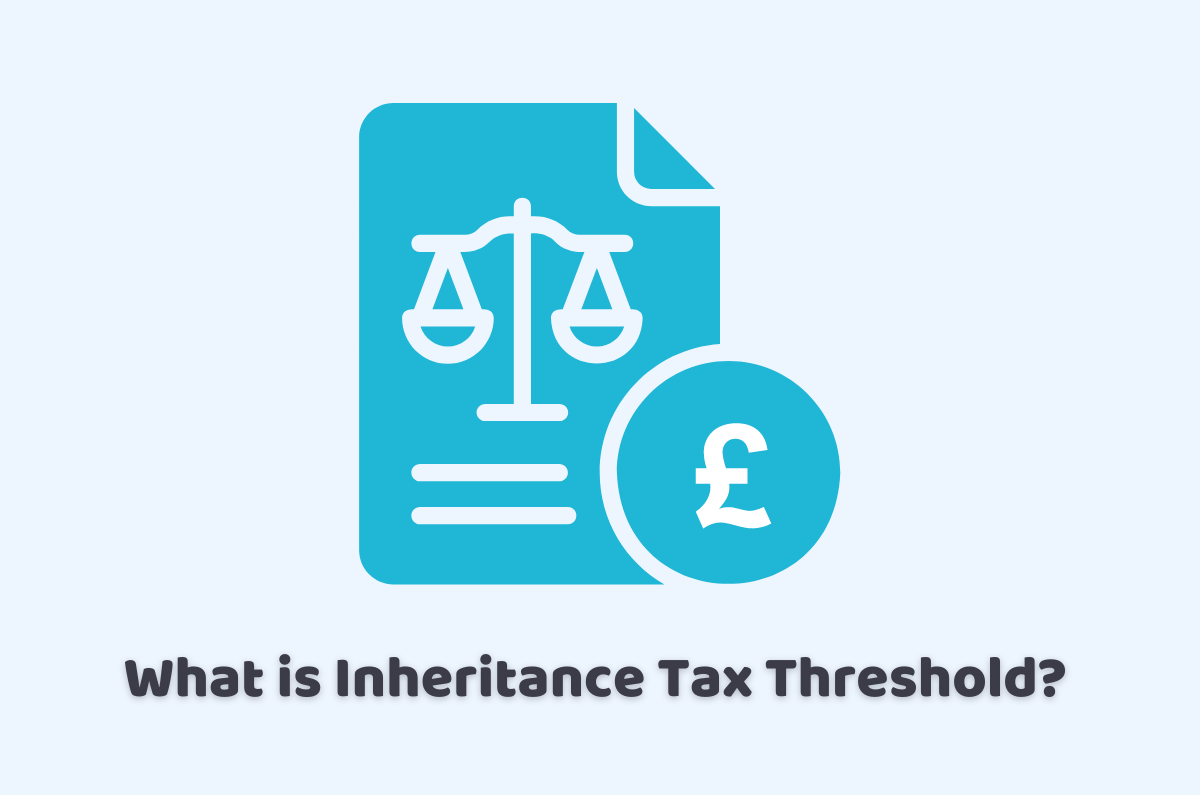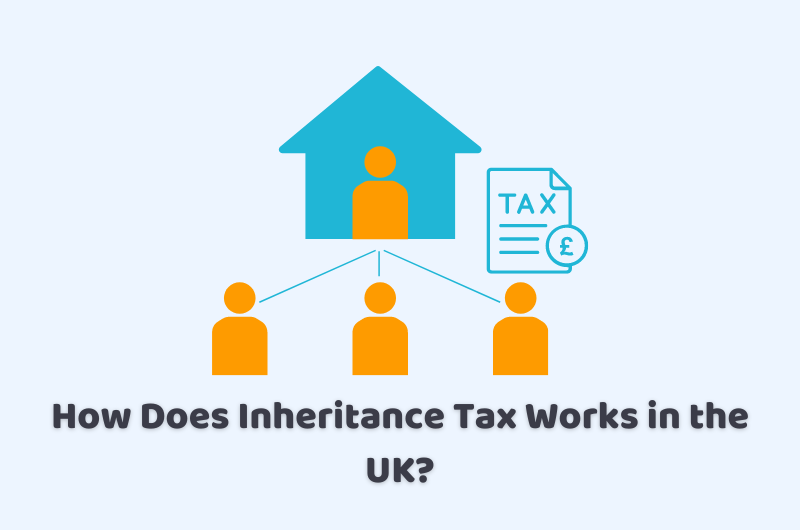
07/11/2023tax , Tax Issues , Tax News and Tips , Tax Saving Tips , Taxation
Are you worried about abolishing inheritance tax in the UK? This guide will help to dive into the topic of abolishing the Inheritance Tax (IHT). It’s been a hot topic of discussion lately, and there are a few reasons why the government might consider this move. Nobody likes dealing with complicated tax processes, right? Another reason is to potentially boost economic growth and encourage investment.
By removing the burden of taxation on inherited wealth, individuals would have more freedom to pass on their assets to future generations. This could stimulate economic activity and give people more control over their assets. Additionally, the idea of fairness and equality comes into play. With the abolition of IHT, individuals would have the freedom to distribute their wealth as they wish, without the government taking a slice. Of course, any decision to abolish IHT would need careful consideration of alternative revenue sources to make up for the potential loss of tax income. So, that’s the gist of it!
Talk to one of our intelligent and clever professionals to get your further queries about the abolishing inheritance tax. We will ensure to come up with the best possible solution.
Why Do We have IHT?
We have Inheritance Tax (IHT) for a few important reasons. First and foremost, it helps the government generate revenue to fund public services and investments in areas such as healthcare, education, infrastructure, and more. Moreover, IHT encourages individuals to engage in estate planning and make decisions that can benefit their loved ones and charitable causes.
By considering the potential tax implications, people may be motivated to make charitable donations or set up trusts to support causes they are passionate about. Lastly, IHT also acts as a measure to prevent tax evasion and avoidance, ensuring that individuals cannot simply transfer their assets to avoid tax liabilities. While IHT can be a complex topic, understanding its purpose and implications can help individuals navigate their estate planning and contribute to the overall welfare of society.
Who Pays Inheritance Tax?
The executor or administrator is responsible for calculating the value of the estate, applying any exemptions and allowances, and determining the amount of IHT owed. They are also responsible for filing the necessary paperwork and making the payment to HM Revenue and Customs. It’s important to note that the payment of IHT typically comes from the deceased person’s estate, rather than from individual beneficiaries. However, in certain cases, beneficiaries may be required to contribute towards the tax liability if specific provisions are outlined in the deceased person’s will.
How Much Revenue is Generated from IHT?
I’m not exactly sure about the specific amount of revenue generated from Inheritance Tax (IHT) in the UK. However, IHT does contribute to the overall tax revenue of the country. The exact figures can vary from year to year based on a variety of factors, including changes in tax rates and thresholds, as well as fluctuations in the number of estates subject to the tax.
If you’re interested in finding detailed and up-to-date information on the revenue generated from IHT, it is recommended to check official government sources or consult with a tax professional who can provide you with the most accurate and current data.
Why is it a Particularly Unpopular Tax?
Inheritance Tax (IHT) has gained a reputation for being an unpopular tax for a few reasons. One reason is that it can be seen as a “double tax” since individuals have already paid taxes on their income and assets throughout their lives. Additionally, the threshold for IHT has remained relatively unchanged for many years, while property prices and asset values have increased significantly.
This has resulted in more estates being subject to the tax, which can be perceived as unfair by some. Furthermore, IHT can be complex and confusing to navigate, requiring professional advice and planning. Lastly, there is a sentimental aspect to IHT, as it is often associated with the passing of a loved one, which can make discussions about taxes during a time of grief uncomfortable. These factors contribute to the perception that IHT is an unpopular tax in the UK.
Why Would the Government Consider Abolishing it?
The government may consider abolishing the Inheritance Tax (IHT) in the UK for various reasons. One reason is to simplify the tax system and reduce administrative burdens for individuals and families. Abolishing IHT could also be viewed as a way to stimulate economic growth and encourage investment, as it would allow individuals to pass on their wealth to future generations without the burden of taxation.
Additionally, the abolition of IHT could be seen as a means to promote fairness and equality, ensuring that individuals have greater control over their assets and can freely distribute them as they wish. However, should keep a follow up any decision to abolish IHT would require careful consideration of alternative revenue sources to compensate for the potential loss of tax revenue.
So, What will Happen Next, Will there be a Replacement?
It’s hard to say for sure what will happen next regarding the potential abolition of the Inheritance Tax in the UK. The government may continue to evaluate the impact and feasibility of such a change, taking into account various factors such as economic considerations, public opinion, and the overall tax system. Any decision on this matter would require careful deliberation and consideration of potential alternatives. In the meantime, you must stay informed about any updates or changes in tax policies.
What Else Could the Government Do?
The government could consider various actions regarding the Inheritance Tax (IHT) in the UK. One possibility is to review and potentially revise the tax thresholds and rates to make them more aligned with the current economic landscape. They could also explore options for simplifying the tax system and reducing administrative burdens for individuals and families. Additionally, the government could provide more guidance and resources to help individuals plan their estates and navigate the complexities of IHT.
Another avenue could be to consider introducing exemptions or reliefs for certain types of assets or circumstances, such as family homes or small businesses, to alleviate the burden of taxation. Ultimately, any decisions made by the government would need to carefully balance the need for revenue with the desire for fairness and simplicity in the tax system.
The Bottom Line
In conclusion, the discussion on the potential of abolishing inheritance tax in the UK has highlighted various considerations. While the government may explore options such as simplifying the tax system, revising thresholds and rates, and providing exemptions or reliefs, any decision would require careful evaluation of economic impacts, public opinion, and alternative revenue sources.
Moreover, stay informed about updates in tax policies and consult with professionals for accurate and current information. Ultimately, the government would aim to strike a balance between stimulating economic growth, promoting fairness, and ensuring the sustainability of tax revenue.
If you seek professional help to learn more about abolishing inheritance tax, why wander somewhere else when you have our young and clever team of professionals at CruseBurke?
Disclaimer: All the information provided in this article on abolishing inheritance tax includes all the texts and graphics. It does not intend to disregard any of the professional advice.



